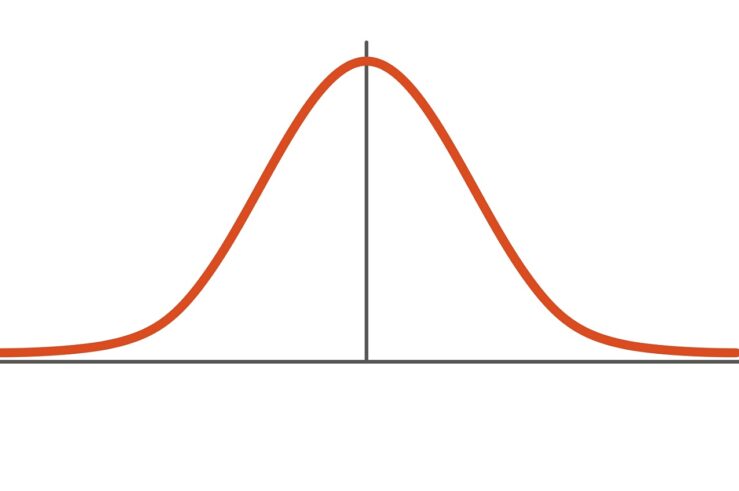Showing archive for: “Clayton Act”
A Consumer-Welfare-Centric Reform Agenda for the Federal Trade Commission
As we approach a presidential election year, it is time to begin developing a comprehensive reform agenda for the Federal Trade Commission (FTC). In that spirit, this post proposes 12 reforms that could be implemented by new leadership, either through unilateral action by a new chair or (in some cases) majority votes of the commission. ... A Consumer-Welfare-Centric Reform Agenda for the Federal Trade Commission
Market Power as a Limiting Principle in Merger Enforcement
One of the most important changes in the Federal Trade Commission (FTC) and U.S. Justice Department’s (DOJ) draft merger guidelines is the abandonment of market power as the central element of merger enforcement. The “unifying theme” of the 2010 horizontal merger guidelines was that “mergers should not be permitted to create, enhance, or entrench market ... Market Power as a Limiting Principle in Merger Enforcement
The Changing Role of Structural Presumption at the Federal Trade Commission
The draft merger guidelines that were released July 19 by the Federal Trade Commission (FTC) and U.S. Justice Department (DOJ) indicate a shift by the agencies toward an overreliance on structural market factors to trigger merger scrutiny. For example, Draft Guideline 1—titled “Mergers Should Not Significantly Increase Concentration in Highly Concentrated Markets”—would lower the bar ... The Changing Role of Structural Presumption at the Federal Trade Commission
Abandoning Antitrust Common Sense: The FTC’s New Normal?
This symposium wonders what exactly is “The FTC’s New Normal”? The short answer: scary. The current Federal Trade Commission (FTC) leadership is clear that old U.S. Supreme Court opinions, rather than more recent jurisprudence, are their lodestones for antitrust analysis. This is dramatically illustrated by the draft merger guidelines recently proposed by the FTC and ... Abandoning Antitrust Common Sense: The FTC’s New Normal?
The FTC Tacks Into the Gale, Battening No Hatches: Part 1
The Evolution of FTC Antitrust Enforcement – Highlights of Its Origins and Major Trends 1910-1914 – Creation and Launch The election of 1912, which led to the creation of the Federal Trade Commission (FTC), occurred at the apex of the Progressive Era. Since antebellum times, Grover Cleveland had been the only Democrat elected as president. ... The FTC Tacks Into the Gale, Battening No Hatches: Part 1
Antitrust at the Agencies Roundup: Back to the Past Edition
Labor Day approaches with most of us looking forward to a long weekend off, but there’s much in competition world looming on the horizon. As I am looking forward to a couple of days off, I’ll offer more of an annotated bibliography than analysis. But also a bit of discussion, because I am what I ... Antitrust at the Agencies Roundup: Back to the Past Edition
Artificial Intelligence Meets Organic Folly
In a May 3 op-ed in The New York Times, Federal Trade Commission (FTC) Chair Lina Khan declares that “We Must Regulate A.I. Here’s How.” I’m concerned after reading it that I missed both the regulatory issue and the “here’s how” part, although she does tell us that “enforcers and regulators must be vigilant.” Indeed, ... Artificial Intelligence Meets Organic Folly
7 Top Takeaways from the 2nd Annual Mercatus Antitrust Forum
At the Jan. 26 Policy in Transition forum—the Mercatus Center at George Mason University’s second annual antitrust forum—various former and current antitrust practitioners, scholars, judges, and agency officials held forth on the near-term prospects for the neo-Brandeisian experiment undertaken in recent years by both the Federal Trade Commission (FTC) and the U.S. Justice Department (DOJ). ... 7 Top Takeaways from the 2nd Annual Mercatus Antitrust Forum
The New FTC Section 5 Policy Statement: Full of Sound and Fury, Signifying Nothing?
The Federal Trade Commission’s (FTC) Nov. 10 Policy Statement Regarding the Scope of Unfair Methods of Competition Under Section 5 of the Federal Trade Commission Act—adopted by a 3-1 vote, with Commissioner Christine Wilson issuing a dissenting statement—holds out the prospect of dramatic new enforcement initiatives going far beyond anything the FTC has done in ... The New FTC Section 5 Policy Statement: Full of Sound and Fury, Signifying Nothing?
FTC Section 5 Statement: Less Guidance Than Meets the Eye
On Nov. 10, the Federal Trade Commission (FTC) issued a new statement explaining how it will exercise its standalone FTC Act Section 5 authority. Despite the length of the statement and the accompanying commentaries from most of the commissioners, there is less guidance than one might expect from so many words. One thing is clear, ... FTC Section 5 Statement: Less Guidance Than Meets the Eye
Lina Khan’s Christmas Wish Is To Have Margrethe Vestager’s Powers
Federal Trade Commission (FTC) Chair Lina Khan has just sent her holiday wishlist to Santa Claus. It comes in the form of a policy statement on unfair methods of competition (UMC) that the FTC approved last week by a 3-1 vote. If there’s anything to be gleaned from the document, it’s that Khan and the ... Lina Khan’s Christmas Wish Is To Have Margrethe Vestager’s Powers
The End of Reason at the FTC
In a 3-2 July 2021 vote, the Federal Trade Commission (FTC) rescinded the nuanced statement it had issued in 2015 concerning the scope of unfair methods of competition under Section 5 of the FTC Act. At the same time, the FTC rejected the applicability of the balancing test set forth in the rule of reason ... The End of Reason at the FTC
















